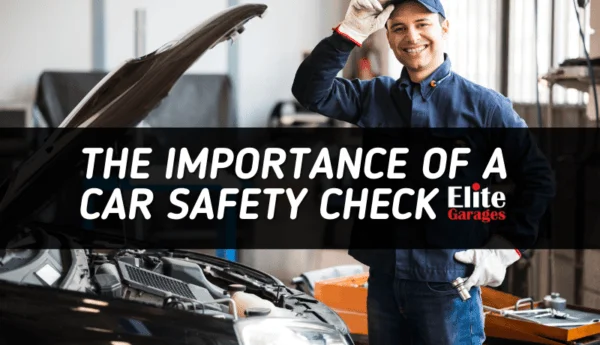
Performing A Car Health Check After Prolonged Inactivity
As most of us hunkered down at home through the numerous Covid-19 lockdowns, many vehicles remained inactive for some time. Whilst you can leave a car without starting for a few weeks, after that (and a general lack of regular use) can lead to certain problems. Having a car health check can identify any minor issues before they become more serious. Here are some expert tips on how to look after your car during and after any period of inactivity.
Why A Car Health Check Is Important
Even without lockdown and travel restrictions, it’s not uncommon for people to leave their cars unused for extended periods. The thing is, periods of inactivity could impact various parts of your car, including the battery, brakes, tyres, air conditioning and even the bodywork.
A car health check can help as early detection could avoid potentially fatal (and expensive) problems. After all, everything is about keeping you and your family safe so if your car has been inactive for a while, it’s important to do a car check once the government eases lockdown restrictions.
Checking Car Batteries
Any car battery left unattended for a long time will lose charge but how fast depends on weather conditions, such as temperature and humidity. Older car batteries are closer to the end of their serviceable life and won’t be able to hold as much charge as a new battery which means faster discharging.
To avoid a dead battery, you can do the following:
- start your car once a week and let it run for about 5-10 minutes
- use a trickle charger or battery conditioner to ensure your battery maintains its proper voltage
- fit a battery monitor connected to a mobile phone where a dongle attaches to the battery terminals to monitor battery health and keep you updated at all times
Recommended: ‘Car Battery Testing And Maintenance Tips’
What About Electric Vehicles And Plug-in Hybrids?
Even with the latest technology, electric cars and PHEVs still rely on a 12-volt auxiliary battery for powering the system. That means they can still go flat like any conventional car when left unused for extended periods. The best way to maintain the batter on EV’s may vary between manufacturers but a common option is to put the vehicle in ‘ready mode’ every few weeks to recharge.
Remember, the main high voltage battery should not be left on charge permanently. It should be maintained at around 50% charge but not drop below 30% if you are not using the vehicle regularly. We recommend checking the owner’s manual for more detailed information.
Tyres As Part Of A Car Health Check
We spoke about economy, mid-range and performance tyres in a recent article explaining the differences and benefits. It also mentions that all tyres are subject to normal wear and tear but long periods of inactivity could make it worse.
Over time, all tyres lose pressure and will deflate developing flat spots on the contact patch with the road surface. Tyres left outside will degrade with sunlight as extended exposure to UV light can damage the rubber, increasing the likelihood of tyre failure or a tyre blowout.
Tyre Care Tips
Correct tyre pressure is vital for your car’s performance, safety and mileage. Ensuring your tyres are in good condition and at the correct pressure will help with even tread wear.
- Make sure your tyres are inflated to the correct pressure which you can find in your manufacturer’s handbook
- Check your tyre pressure at least once a month using a pressure gauge or at your nearest garage
- Make sure you have sufficient tyre tread (at least 1.6 mm but preferably 3 mm). Use a tread depth gauge, check the tread wear indicators or do the 20p coin test
- Regularly rotate your tyres to shift the weight to a different spot
- Check the condition of your tyres and look for cracks, punctures or bulges, especially in the sidewalls. If you notice any visible damage, you may need to change it
Recommended: ‘How To Check Your Tyre Tread’
Care Tips For Brakes
Prolonged inactivity can result in binding brakes or seized brakes as rust can form on the pads or discs. Even if they don’t seize, long periods of inactivity can reduce braking efficiency which makes your car unsafe. Here’s what the experts say you should do:
- Ask your garage to remove the friction pads, inspect and replace them if needed
- Clean the sliding surfaces and apply high-temperature copper grease to maximise braking efficiency and minimize seizing during periods of inactivity
- Use your vehicle when you can and apply a reasonable amount of force for around 4 seconds from 50mph
- Make sure to rinse down your wheels, underside and brakes to remove any salt residue
- If possible, leave the handbrake off when left parked for a long time to avoid seizing. Put the car in gear, chock the wheels and turn your wheels to the side
Make Oil, Coolant, Washer Fluid and Lights Part Of Your Car Health Check
When coming out of lockdown and you haven’t used your car all that often, make sure to include oil, coolant and lights to your car health check. Just because you drove less due to travel restrictions doesn’t mean you should extend your oil change interval.
If a car is parked up and not being driven regularly, the oil will deteriorate as a result of temperature fluctuations. If you’re unsure of your oil change intervals, check the owner’s manual for the maximum amount of time.
- Top up oil after safely draining the used oil
- Take your car for a decent ride to allow the fresh oil to circulate the engine
- Fill up your tank to prevent moisture from accumulating and rust from developing
- Check and top up coolant and window washer
- Use your air conditioning for a few minutes after any period of inactivity
Car Health Check And MOTs
Even without the lockdown, so many people already forget their MOTs and that is problematic. Not only is it illegal to drive without a valid MOT certificate but it’s also extremely dangerous. You could be faced with hefty fines, invalidated insurance and points on your licence.
Before setting off anywhere, make sure to check that your MOT is up to date. And, to make sure you never forget your MOT, sign up for our Elite Member’s Club to receive FREE text reminders and first access to special offers.
Why Choose Elite Garages For A Car Health Check?
Whether it’s changing of season or coming out of lockdown, Elite Garages offer a wide range of services and inspections, including a vehicle safety check. Our team of experts are dedicated to providing you with the highest level of service and comprehensive car checks all-year-round.
With over 50 years of experience in the automotive trade, we know first-hand the importance of a car health check. When you visit any of our Elite Garages, you can request a free car check, free car safety check, free exhaust check, free tyre check or a free brake check. Get in touch with your nearest branch and give your car a clean bill of health.
About Us
Opening Times
Saturday : 8:30–4:00
Sunday : closed
More Information
Contact UsCustomer Information Pack
Check MOT Due Date
Free MOT reminder
Careers



